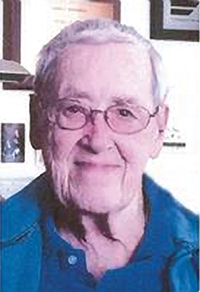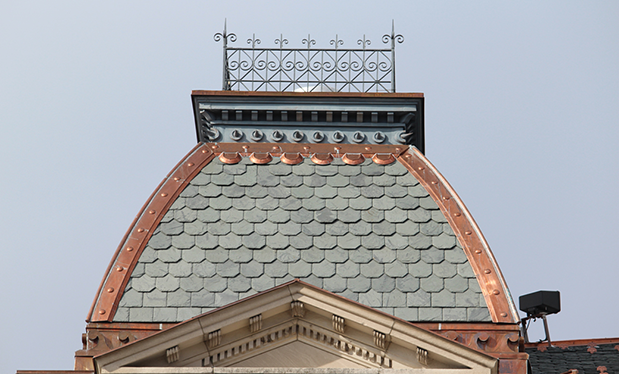ICC-SRCC joins Global Solar Certification Network
ICC Evaluation Service has announced its Solar Rating & Certification Corp. (ICC-SRCC) joined the Global Solar Certification Network (GSCN), an international consortium of certification and inspection bodies, test labs and solar thermal industry representatives working together to streamline certification of solar thermal products internationally. ICC-SRCC is the first certification body accepted into GSCN.
GSCN's goal is to minimize the need for repetitious testing and inspection to meet certification requirements in each country a solar thermal product is sold by standardizing the common elements of participating programs and facilitating connections between inspectors and certification bodies worldwide. GSCN does not replace regional certifications. Consumers will have access to a larger variety of products as the certification process for solar thermal technologies is simplified.
"We are proud of our acceptance into this groundbreaking network," says Shawn Martin, director of ICC-SRCC. "We believe GSCN will make it easier for North American manufacturers to export their products and expand their markets. We also expect our involvement will make it possible for more international manufacturers to bring new and innovative solar thermal technologies to North America by certifying with ICC-SRCC."
Longtime NRCA member passes away

Gumpertz |
Werner Gumpertz, co-founder of NRCA member Simpson Gumpertz & Heger (SGH), Waltham, Mass., passed away Dec. 1, 2017. He was 99.
Born in Berlin, Gumpertz earned the equivalent of a bachelor's degree in civil engineering from the Swiss Federal Institute of Technology, as well as a bachelor's degree in civil engineering, master's degree in building engineering and construction, and an advanced professional degree of building engineer from the Massachusetts Institute of Technology (MIT), Cambridge. With his MIT colleagues Howard Simpson and Frank Heger, Gumpertz established SGH in 1956. He dealt primarily with building materials, systems and construction and founded SGH's Building Technology Group, leading it from 1956 to 1993. He never retired and remained active in the firm's business.
During his career, Gumpertz received the 1968 Honor Award for Design in Urban Transportation from the U.S. Department of Housing and Urban Development; 1986 Award of Merit from ASTM International for leadership, commitment and innovation in the promotion of engineering standards for roofing materials and systems; and ASTM International's Walter C. Voss Award in 1987 for outstanding contributions to the advancement of building technology. In 2003, the Boston Society of Civil Engineers Section named Gumpertz an Honorary Member for attaining eminence in his field.
Gumpertz is survived by his wife, Susan Connors; children, Richard and Ruth; granddaughters, Beckie, Katie, Samantha and Valerie; son-in-law, Joel; and daughter-in-law, Karen. Donations in Gumpertz's name may be made to Beth Israel Deaconess Medical Center Cardiac MR Center, c/o Dr. Warren Manning, 330 Brookline Ave., Boston, MA 02215, or Stoneman Center for Research and Education in Quality Improvement, c/o Dr. Mark Aronson, Beth Israel Deaconess Medical Center, 330 Brookline Ave., Boston, MA 02215.
ICC unveils resources to promote code officials
The International Code Council (ICC) has launched its Value of the Code Official toolkit, an online resource intended to help government officials, ICC members and others build awareness for code officials' significant roles within their communities.
Code officials review plans and conduct inspections to ensure buildings follow a community's codes and standards. Structures constructed in accordance with updated building codes are more likely to withstand disasters, saving lives and reducing the cost and time needed for rebuilding. The International Codes are the most widely used set of building safety codes in the U.S.
The toolkit also encourages students and young professionals to join the industry's network of qualified professionals. According to a 2014 survey conducted by ICC and the National Institute of Building Sciences, the building industry may experience a loss of 80 percent of its workforce during the next 15 years. Retiring workers and a growing demand for skilled labor make the construction industry an advantageous opportunity for young adults entering the workforce.
"The Value of the Code Official toolkit builds on the Code Council's innovative work through the High School Technical Training Program, the Military Families Building Safety Program and our other Safety 2.0 programs," said ICC Board President Jay Elbettar. "In the wake of the recent destructive hurricane season and widespread California wildfires, we continue to highlight the critical role of the code official in creating safe buildings and resilient communities."
The Value of the Code Official toolkit includes talking points, presenter notes and presentation slides, a flyer for electronic and print distribution, and a video. For more information, visit www.iccsafe.org/codeofficialtoolkit.
Study reveals two trends for improving construction safety
A new study from Dodge Data & Analytics, New York, reveals the improvement of construction safety can be led by two critical trends—technology used on job sites and the practice of Prevention through Design (PtD), according to www.construction.com.
The study was conducted in partnership with the Center for Construction Research and Training and United Rentals and published in the Safety Management in the Construction Industry 2017 SmartMarket Report. It is the third in a series of studies examining the benefits contractors can receive from their safety investments. The study shows the effects new technologies such as drones and wearable devices have on improving job-site safety. It also suggests PtD, the active consideration of safety during building design, is an emerging practice well-positioned for broader acceptance in the design and construction industries.
The study's findings regarding the benefits of safety investments, along with previous studies conducted in 2012 and 2015, show investment in safety has a positive effect on project budgets, schedules, quality and business factors such as a contractor's standing in the industry or ability to contract new work. Contractors reported a 4 percent average reduction in project costs. The data also revealed smartphones are used on nearly all job sites, and tablet use is widespread and growing.
The documentation of site conditions and work progress is important to many safety efforts. Forty-two percent of contractors reported they employ safety inspection checklist apps, but use of mobile tools for safety training (35 percent) and to access safety and health websites (28 percent) is less common. Twenty-one percent of contractors use drones to promote job-site safety, and 70 percent of contractors believe the use of drones has a positive effect on safety. And although wearable devices such as badges with coded electronic information and smart helmets currently are only being used by 13 percent of contractors, 82 percent of those who use them report a positive effect on safety.
"Technology is drastically improving job-site safety, providing tangible results in protecting workers and firms alike," says Jim Dorris, United Rentals' vice president of environmental, health and safety. "Evolving data platforms, tools and service capabilities will deliver innovative new safety solutions, and United Rentals is excited about the emerging roadmap to safer projects of all types."
The study found though few architects were aware of the formal name for PtD before taking the survey, the use of PtD practices occurred at least to some degree. Eighty-three percent of architects reported they have worked with general contractors and other trades before completing a schematic design to identify opportunities for prefabrication.
The full report is available by clicking here.
Former ASTM International committee member passes away

Weideman |
James P. "Jim" Weideman, former technical director for Koppers Co. Inc., Pittsburgh, passed away June 21, 2017. He was 89.
Weideman had a degree in architectural engineering from the University of Detroit. From the early 1970s through the mid-1990s, he served as technical director of the roofing products division at Koppers. Weideman was actively involved with ASTM International's Committee D08 on Roofing and Waterproofing from the 1970s through the early 2000s. He was awarded ASTM International's Award of Merit in 1988 and the prestigious ASTM D08 William C. Cullen Award in 2005. Weideman also was an active member of the Asphalt Roofing Manufacturers Association's Technical Committee; an original faculty member of the Roofing Industry Educational Institute; and delivered lectures to NRCA, the National Roofing Legal Resource Center and the Construction Specifiers Institute.
Weideman was preceded in death by his wife, Joan; son, John; and sister, Mary Lou. He is survived by his children, Jeanne, Jim, Joanie, Julie and Mary; grandchildren, Gabe, Jaime, Jason, Jesse, Joe, Justin, Liz, Maria, Marina, Mark, Meg, Rob and Ryan; great-grandchildren, Charlotte, Jonah and Rhilee; and brother, Martin. Donations in Weideman's name may be made to the Passavant Hospital Foundation, Donation for Patient Cancer Floor Respite Room, 9100 Babcock Blvd., Pittsburgh, PA 15237.



